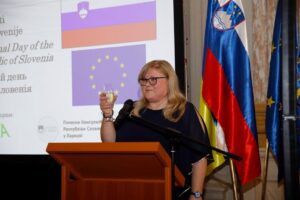
A solemn diplomatic reception was held in Kyiv on the occasion of the 34th anniversary of the declaration of independence of the Republic of Slovenia. The event brought together representatives of the Ukrainian government, diplomatic corps, the public and businesses operating in Ukraine. The Ambassador Extraordinary and Plenipotentiary of the Republic of Slovenia to Ukraine, Ms. Mateja Prevolšek, delivered a speech.
In her address, the Ambassador emphasized the commonality of the historical challenges that Slovenia and Ukraine have faced in their struggle for independence, democracy and national identity.
“Slovenia is celebrating its 34th birthday. At the same time, Ukraine gained its independence, because it was an era full of changes, new ideas and hopes for freedom, democracy and economic development,” Mateja Prevolšek said.
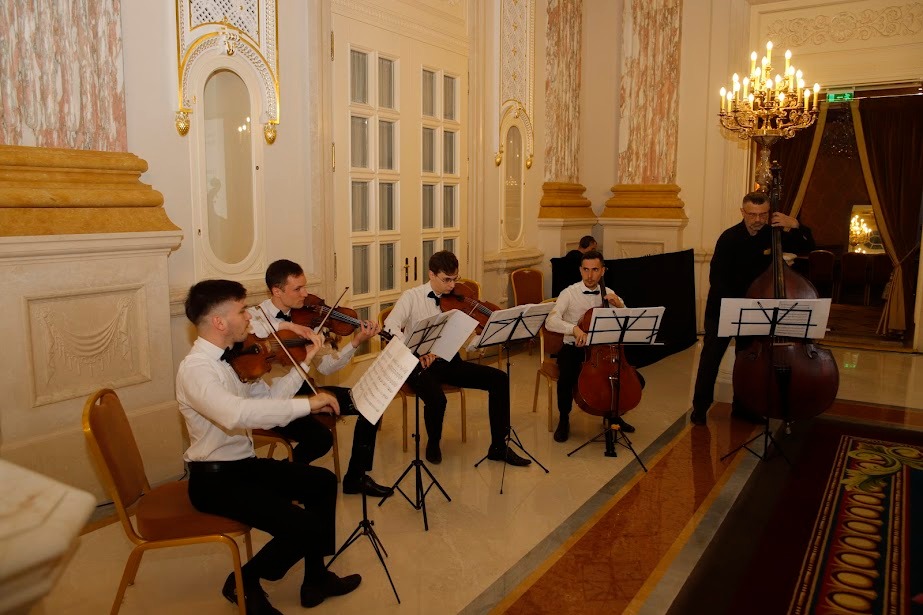
She emphasized that despite the obvious geographical and demographic differences, the two countries have been maintaining close partnerships for over 30 years. According to her, Slovenia is firmly committed to supporting Ukraine’s European course and its struggle for freedom.
“I have had and have the opportunity to see the courage of the Ukrainian people, their desire for a better future in their own country, visiting many Ukrainian regions, cities and villages to support projects within the framework of Slovenian development cooperation and humanitarian aid,” the diplomat added.
Slovenia supports a number of initiatives in Ukraine, including rehabilitation of veterans, training of psychologists and teachers to work with traumatized children, and cooperation between Ukrainian and Slovenian municipalities.
The guests were especially warm when the Ambassador told them about her personal decision to learn Ukrainian. She emphasized the importance of preserving linguistic identity for both Slovenes and Ukrainians.
“It was a very good decision, because I will not only learn the melodiousness of your language, but I will also be able to communicate with people and better understand their feelings,” Ms. Prevolšek emphasized.
At the end of her speech, the Ambassador expressed her gratitude to all Slovenian companies operating in Ukraine that contributed to the organization of the reception, as well as to the diplomatic team and her husband for their support.
The reception ended with the traditional raising of glasses in honor of the friendship between Slovenia and Ukraine, which, according to the Ambassador, “was born out of a difficult past, but is confidently moving towards a common future.”
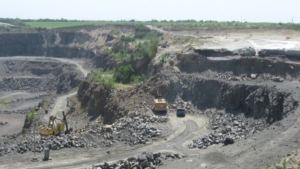
During its spring offensive, Russian forces took control of one of Ukraine’s most promising lithium deposits — the Shevchenkivske site in Donetsk region. Previously under development by an American critical minerals company, the site was seen as a key asset in the growing economic partnership between Kyiv and Washington in the field of strategic resources. Its capture now poses serious risks to future joint projects and has already raised concerns among Western investors.
The Shevchenkivske deposit contains significant reserves of spodumene — a mineral from which lithium is extracted. Lithium is essential for manufacturing batteries used in electric vehicles and energy storage systems. Ukraine had earlier signed a framework agreement with the United States on cooperation in the field of critical raw materials, including the development of domestic lithium, titanium, and rare earth element extraction — crucial for the West’s green energy transition. The agreement envisioned attracting investment into Ukrainian subsoil resources. However, with Shevchenkivske now under Russian control, the feasibility of that cooperation is under threat.
Myroslav Zhernov, the director of the company holding the license for the site, confirmed the loss in a comment to The New York Times. According to him, the battle for the deposit lasted several weeks: “It was very hot. They were bombing with everything they had. And now they’re there.” Zhernov warned that this may not be the end: “If the Russians advance farther, they will control more and more deposits.”
The New York Times reports that signs of activity have already been observed on the occupied territory: an assessment of reserves is underway, and preparations for future extraction may be in progress. In this way, control over lithium could give the Kremlin not only military but also geoeconomic advantages. The article notes that Russia is already leveraging its influence in global raw materials supply chains, particularly in uranium markets.
Although Ukraine still possesses two other major lithium deposits in its western regions, Shevchenkivske was considered the most promising due to its high spodumene concentration — up to 90%. In peacetime, the development of this site could have become not only a source of revenue, but a strategic lever for integrating Ukraine into Western critical materials markets.
Former head of the State Service of Geology and Mineral Resources, Roman Opimakh, explained that such investments are subject to enormous risks during wartime: “Security and control over a deposit is the main prerequisite. The military threat scares away investors, and the loss of such a site effectively nullifies any near-term development plans.”
Observers note that the war is increasingly taking on characteristics of economic conflict. Russia is not only destroying infrastructure but is actively targeting resources that could be useful to itself or potentially strengthen Ukraine. Gaining control over lithium assets allows for pressure on Western corporations and contributes to reshaping global dependencies.
Despite the loss, Zhernov said his company is not giving up on investing in Ukraine and is exploring other options. However, he admitted the situation has fundamentally changed risk assessments: “Before, we saw this project as a driver of economic growth. Now — it’s just another front in the war.”
Earlier, the Experts Club information and analysis center produced a detailed video analysis of the prospects for rare earth element mining in Ukraine.

Revenues from the tourist tax to local budgets in January-May 2025 reached UAH 132 million, while in the same period in 2024 it amounted to UAH 98.6 million, the State Tax Service (STS) reports.
“Kyiv is the most attractive city for tourists. 25% of the paid tourist tax falls on the capital (UAH 33 million),” the service said in a statement on its website on Thursday.
Lviv (UAH 24.7 million), Ivano-Frankivsk (UAH 21.2 million) and Zakarpattia region (UAH 10.5 million) also became leaders in the period under review.
The State Tax Service reminded that the tourist tax is paid to tax agents by citizens of Ukraine, foreigners and stateless persons in advance before temporary accommodation in places of residence. In turn, tax agents (i.e., business entities that provide temporary accommodation services in places of residence/overnight stay: hotels, hostels, rest homes, etc.) transfer it to the local budget.
It is emphasized that the list of tax agents collecting the tourist tax is published on the websites of local councils.
The Service also emphasized that the tax rate is set by local councils independently for each day of stay. It is up to 0.5% of the minimum wage for Ukrainian citizens and up to 5% for foreigners.
Source: https://tax.gov.ua/media-tsentr/novini/909659.html
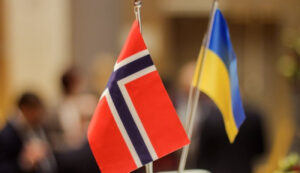
Norway will allocate 6.5 billion Norwegian kroner ($644 million) to purchase drones and drone equipment from Ukrainian and other European manufacturers for Ukraine’s needs, the government’s website reported on Wednesday.
“Drones play an important role in Ukraine’s struggle for its defense. They are important both for the protection of critical infrastructure and for use on the front line. Norway’s assistance will significantly improve Ukraine’s ability to carry out the necessary surveillance and operations with the help of drones,” Norwegian Prime Minister Jonas Gahr Støre was quoted as saying on the website.
According to the information, Norway officially joined the Coalition for the Development of Unmanned Technologies in April and previously announced its intention to increase support for the Ukrainian defense industry and purchase drones for Ukraine.
This is reportedly the first large-scale purchase of drones directly from foreign manufacturers. This is in line with one of the goals underlying the decision made in March of this year by the Storting (Norwegian National Assembly – IF-U) to increase support for Ukraine by 50 billion Norwegian kroner (about $5 billion) by 2025.
The Norwegian government prioritizes meeting military needs based on what Ukraine itself identifies as the most important.
“Funding for the procurement of unmanned aerial vehicles will help to create an independent Ukrainian deterrence system, which will also be important after a potential peace agreement… We will continue to focus our support on maritime security, air defense, unmanned aerial vehicles and autonomous systems. We will also prioritize support for the procurement of defense equipment from Ukrainian manufacturers and cooperation between the Nordic and Baltic countries to equip and train new Ukrainian military units,” said Defense Minister Thorbjørn Sandvik.
It is noted that the support provided and “lessons learned from the war in Ukraine will also help strengthen the Armed Forces and defense capabilities of Norway.”
Source: https://www.regjeringen.no/en/aktuelt/norway-to-provide-nok-6.5-billion-for-procurement-of-drones-for-ukraine/id3111763/
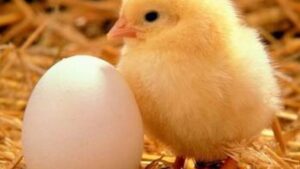
Ukrainian poultry products have entered the market of the Sultanate of Oman, it is already the ninth market opened by Ukraine since the beginning of 2025, said the chairman of the State Service for Food Safety and Consumer Protection (Gosprodpotrebsluzhba) Sergiy Tkachuk.
“Already the ninth new export market opened this year – Ukraine has received permission to supply meat, by-products and other poultry products to Oman. This became possible after the harmonization of veterinary requirements and the form of the certificate between the competent authorities of both countries,” he wrote in Facebook.
Tkachuk emphasized that the opening of the market of the Sultanate of Oman is another significant step in expanding Ukraine’s export opportunities and the result of systematic cooperation between the State Consumer Service, the Ministry of Foreign Affairs, the Ministry of Economy and the Ministry of Agrarian Policy and Food and diplomatic institutions.
“Together we continue to open new horizons for Ukrainian agricultural exports. From now on, Ukrainian producers can supply products that meet the veterinary and sanitary requirements of Oman, taking into account the conditions of production, processing, transportation, packaging and labeling,” – said the chairman of the State Consumer Service.
He added that the form of the certificate is available on the website of the State Consumer Service.
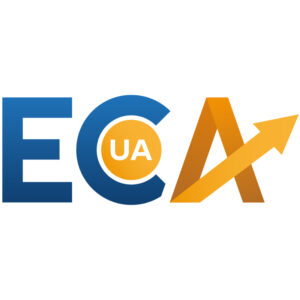
On June 19, the Export Credit Agency (ECA) announced a tender for voluntary insurance of motor vehicles (CASCO), according to the state procurement system Prozorro. The expected cost of purchasing the services is UAH 50 thousand. The deadline for submission of documents is June 28, 2025.
The Export Credit Agency of Ukraine (ECA) is a state institution that supports non-resource exports by insuring the risks of enterprises and banks. The agency insures foreign economic contracts, export credits, bank guarantees, and investment loans against military risks.